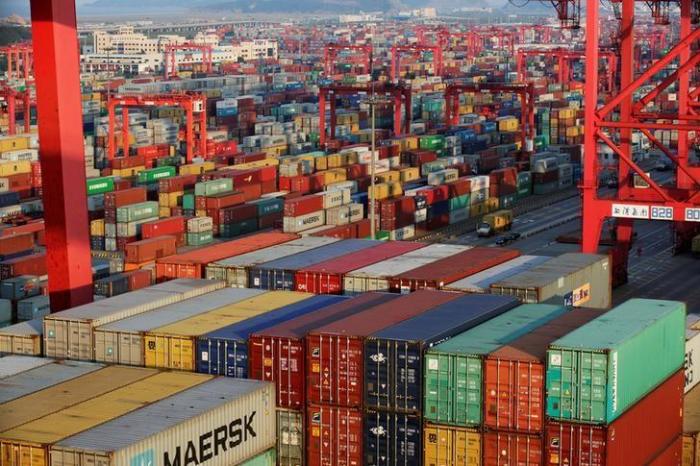Made to trade: what the Bible teaches about exchange

There is a school of thought in economics which believes that beginners are best taught the subject by considering the story of Robinson Crusoe. I will leave the school of economics nameless because getting into debates about economic philosophy is not the purpose of this post. Crusoe, the fictional creation of Daniel Defoe, was famously shipwrecked alone on an island. He learned to survive on his own and then later with the help of a partner.
Crusoe is used to teach economics even though, in Defoe’s novel, he is completely alone at first. There is no one else with whom he can cooperate.
So how can his story teach us anything about economics? Because, even alone, Crusoe has to allocate resources, engage in entrepreneurial activity, and make trade-offs. That last term—trade-offs—is revealing. Basically, it means a person trades with himself. Perhaps Crusoe can eke out subsistence-level nutrition by harvesting and eating shellfish all day. But he forecasts that he will eat better while spending less time on acquiring food if he makes a fish trap. The problem is that making the trap itself will take time and he won’t be gathering shellfish. So he has to decide if he can gather shellfish more rapidly (use more effort) in order to have food while making the trap. Or he can try to tighten his belt and go hungry on the assumption that he can go without food long enough to complete the project and be better off in the end.
Basically, he trades the comfort of having enough food at the moment for the prospect of getting more food more easily. Proverbs talks about these sorts of trade-offs.
“Whoever loves pleasure will be a poor man; he who loves wine and oil will not be rich.”
Proverbs 21:17 ESV
“Precious treasure and oil are in a wise man’s dwelling, but a foolish man devours it."
Proverbs 21:20 ESV
“Be not among drunkards or among gluttonous eaters of meat, for the drunkard and the glutton will come to poverty, and slumber will clothe them with rags."
Proverbs 23:20–21 ESV
“The desire of the sluggard kills him, for his hands refuse to labor."
Proverbs 21:25 ESV
Notice that last statement treats a person’s hands as recalcitrant employees who you want to complete a task but they go on strike instead.
Some criticize the “Robinson Crusoe model” as too individualistic. I think it is just the opposite. It illustrates how trade is part of our nature. We make trade-offs with ourselves to be better off (if we are wise). Much more do we prosper when we work with one another. Solomon speaks so highly of this that he includes simple market transactions in his description of unselfish giving:
“One gives freely, yet grows all the richer; another withholds what he should give, and only suffers want. Whoever brings blessing will be enriched, and one who waters will himself be watered. The people curse him who holds back grain, but a blessing is on the head of him who sells it."
Proverbs 11:24–26 ESV
When God created mankind, he first made a man alone and then a wife. That opened up the possibility of more people, and thus more productivity through the division of labor. The original home of humanity, Eden, is described geographically in a way that hints at a future trade relationship.
“A river flowed out of Eden to water the garden, and there it divided and became four rivers. The name of the first is the Pishon. It is the one that flowed around the whole land of Havilah, where there is gold. And the gold of that land is good; bdellium and onyx stone are there. The name of the second river is the Gihon. It is the one that flowed around the whole land of Cush. And the name of the third river is the Tigris, which flows east of Assyria. And the fourth river is the Euphrates."
Genesis 2:10–14 ESV
Two of these great rivers were known trade routes on which civilizations formed. The mention of mineral deposits down river from Eden hints at the potential that human kind will spread out and send gold back to the garden sanctuary.
Much later, King Solomon presided over the construction of a successor sanctuary that was indeed made with gold and other metals. His trade with King Hiram is described in the Bible (1 Kings 5:1ff; 2 Chronicles 2:1ff), and involved sending goods via rafts (1 Kings 5:9; 2 Chronicles 2:16). The central place for worshiping God was put together through international cooperation brought about by trade.
While trade-offs are inherent in each of us as aspiring, strategizing, individuals, we become much better off joining with other individuals and including them as trading partners. As Solomon says,
“Two are better than one, because they have a good reward for their toil."
Ecclesiastes 4:9
Mark Horne has served as a pastor and worked as a writer. He is the author of The Victory According To Mark: An Exposition of the Second Gospel, Why Baptize Babies?,J. R. R. Tolkien, and Solomon Says: Directives for Young Men. He is the Executive Director of Logo Sapiens Communications and the writer for SolomonSays.net.





























